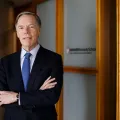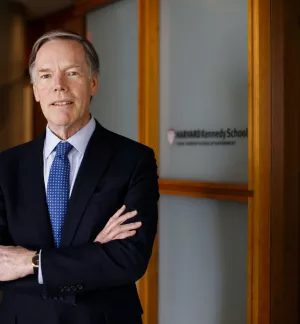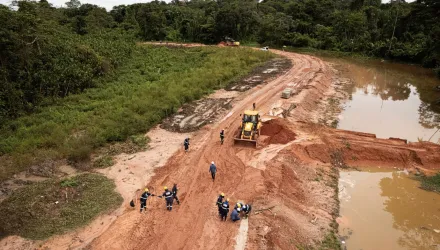A once united continent is threatened by Russian aggression, writes Nicholas Burns
When the cold war ended 25 years ago, Europe emerged as prosperous, democratic, united and peaceful. Today, however, it faces interlocking crises that threaten to undermine the continent’s economy and weaken the EU.
This has significant implications for the US and for its next president. Europe remains America’s largest trade partner and investor, and 25 European nations are members of Nato, its most important military alliance. As a global power, the US must interact with every major region of the world. But for all the undeniable importance of the so-called pivot to Asia, the next US president may have to focus first on Europe.
Americans in both parties worry about a weaker, more divided EU. When Britain leaves, the bloc will lose its second-largest economy and its strongest military. Combined with a recurring Greek debt crisis and declining public support for “ever-closer union”, the European project appears adrift.
Americans are also watching warily the most serious far-right populist revolt in Europe since the 1930s. While the US is experiencing its own ugly nativist campaign, led by Donald Trump, the reactionary Viktor Orban is already in power in Hungary and the Law and Justice government in Poland has created problems for both Brussels and Washington. Will similar movements in France, Belgium, the Netherlands, Austria and Germany deepen the assault on the EU’s liberal democratic foundations?
The US also recognises that the vast number of Syrian, Iraqi, Afghan and North African refugees has overwhelmed Europe’s ability to assimilate them. German chancellor Angela Merkel and other European leaders would be right to ask the new US leader to accept a substantially greater number of refugees than President Barack Obama.
Finally, a previously united Europe is being divided by the aggression of President Vladimir Putin, whose invasion of Georgia and eastern Ukraine and annexation of Crimea pose an existential threat to the survival of free countries along Russia’s southern and western borders.
The Russian challenge will become particularly acute next month, when the US will be in the middle of the presidential transition. That is when European nations must decide whether to extend the sanctions imposed on Moscow after the assault on Ukraine. Anything less than a full and unequivocal extension of the sanctions regime would weaken the American president-elect just as the relationship with Moscow reaches its lowest ebb since the 1980s.
Hillary Clinton has supported the impressive efforts of Mr Obama’s team to rebuild US military strength in Europe. Moving Nato battalions into Poland and the Baltic states to protect them from Russian aggression will be an urgent priority in 2017. This would not be “sabre-rattling”, as claimed by Frank Walter-Steinmeier, the German foreign minister, but a warning to Mr Putin that the west will protect the democracies of eastern Europe at all costs. A new US administration should also consider providing defensive weapons to Ukraine and should ask the EU to deepen its economic commitment to the government of President Petro Poroshenko.
Such strengthening of the west’s position is the surest path to contain Mr Putin. At the same time, the US and Europe will need to keep open the lines to Moscow to seek Russian co-operation on crises that concern us all: Iran, Afghanistan, North Korea and Syria.
There is much more the new president will need to do to shore up the transatlantic alliance. The US must reaffirm its close intelligence and military ties with Britain while also deepening its strategic connection to Europe’s power centre in Germany.
What many Europeans say they need most, however, is a return to stronger American leadership to support them in a time of crisis. The next president will need to stand resolutely with the US’s European partners, not least against the challenge from Mr Putin.
Mrs Clinton would be such a president. Her strong ties to the continent as well as her sturdy convictions and deep international experience could lead a revival of America’s transatlantic link with Europe. Mr Trump, on the other hand, has demonstrated beyond doubt that he is unprepared to exercise these responsibilities. He has consistently devalued Nato and, with his public praise for Mr Putin, has undermined the embattled Ukrainian government.
This is why so many European leaders hope fervently for a Clinton victory next week. She is the candidate who understands what all US presidents since Harry Truman have known — that America’s global fortunes depend in large part on the vital link with Europe, especially at times of crisis.
Burns, Nicholas. “The next American president must look to Europe first.” Financial Times, November 3, 2016





